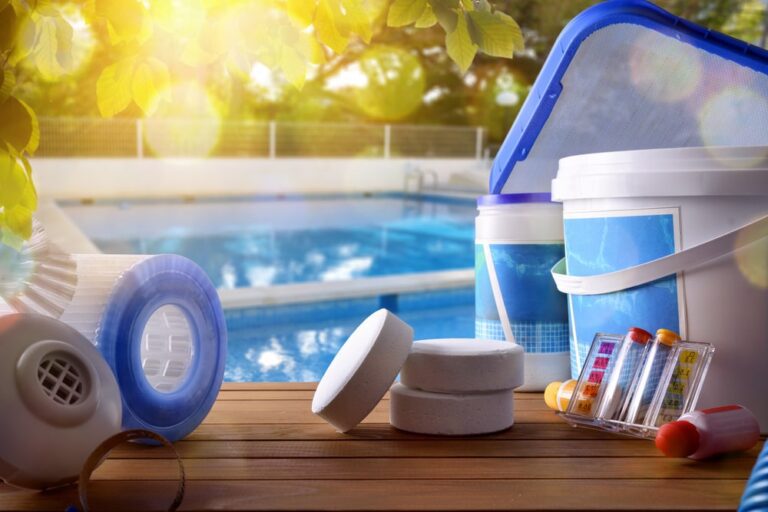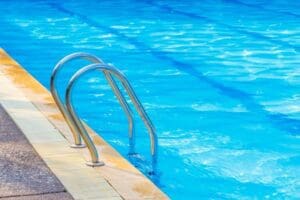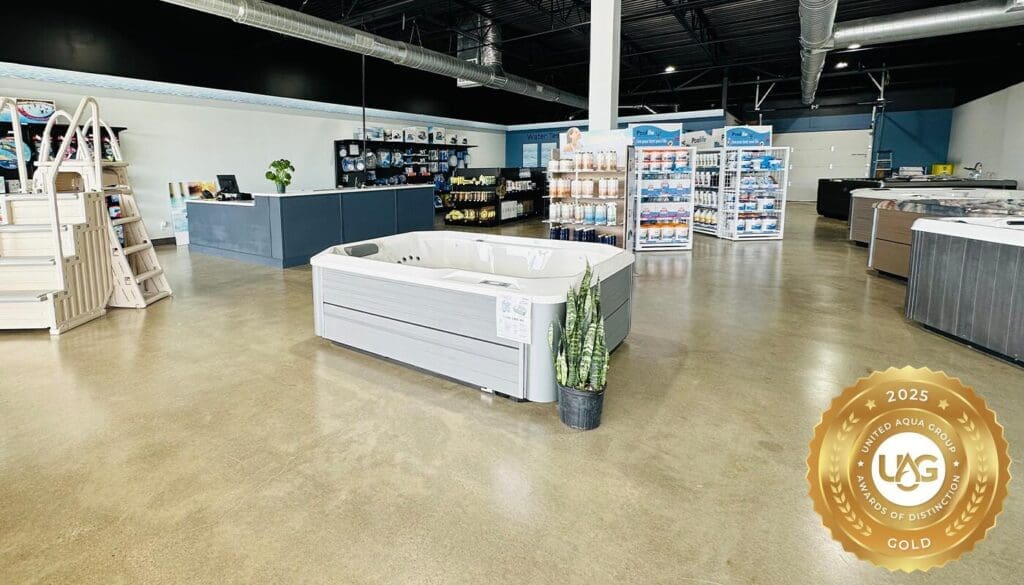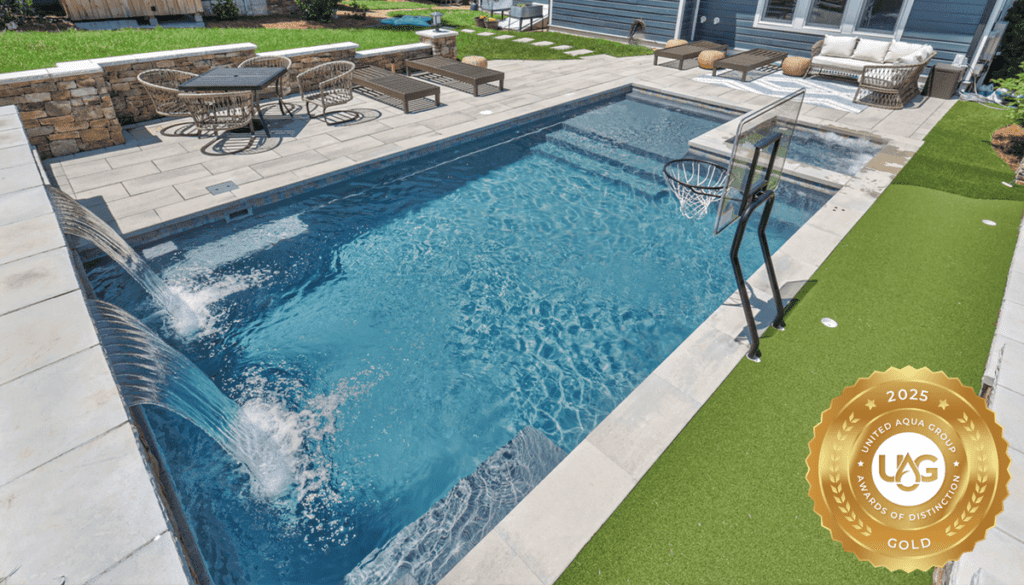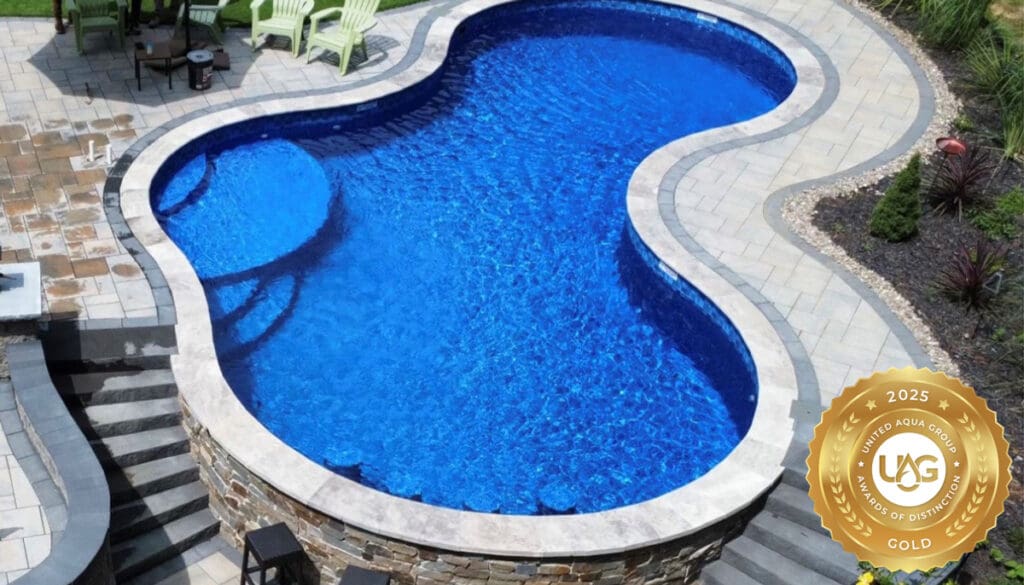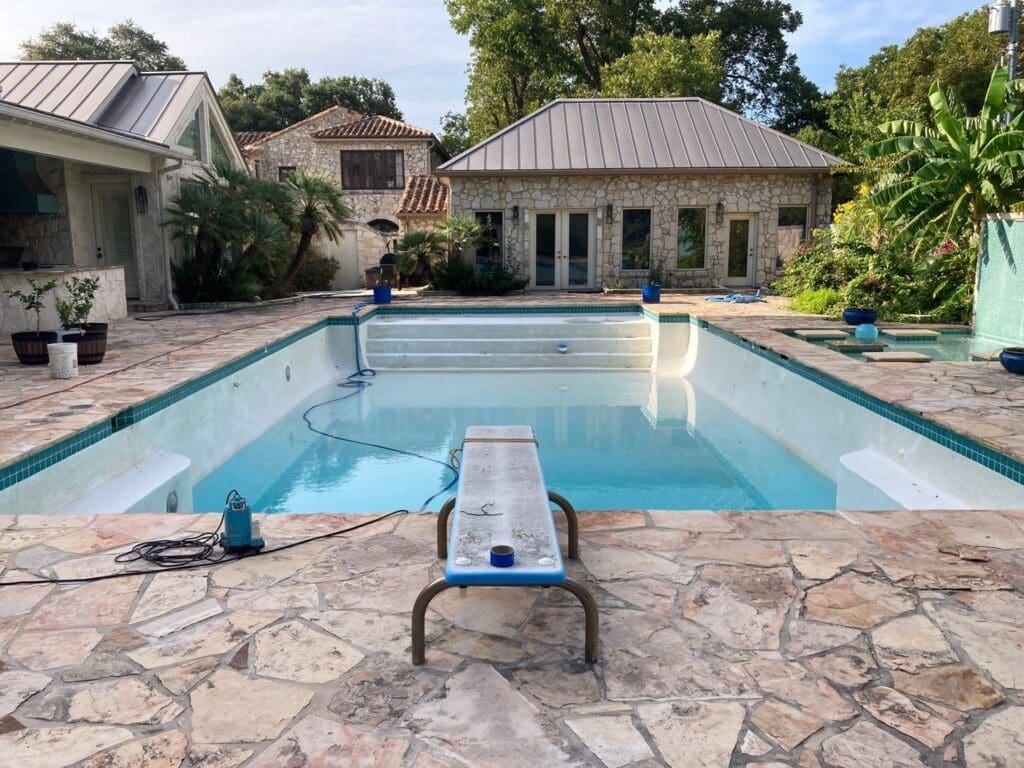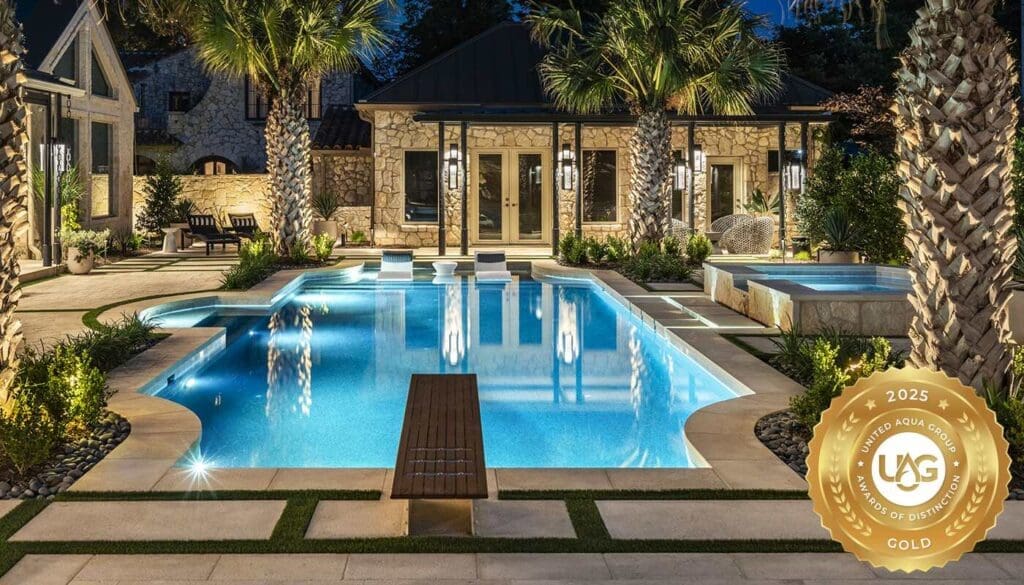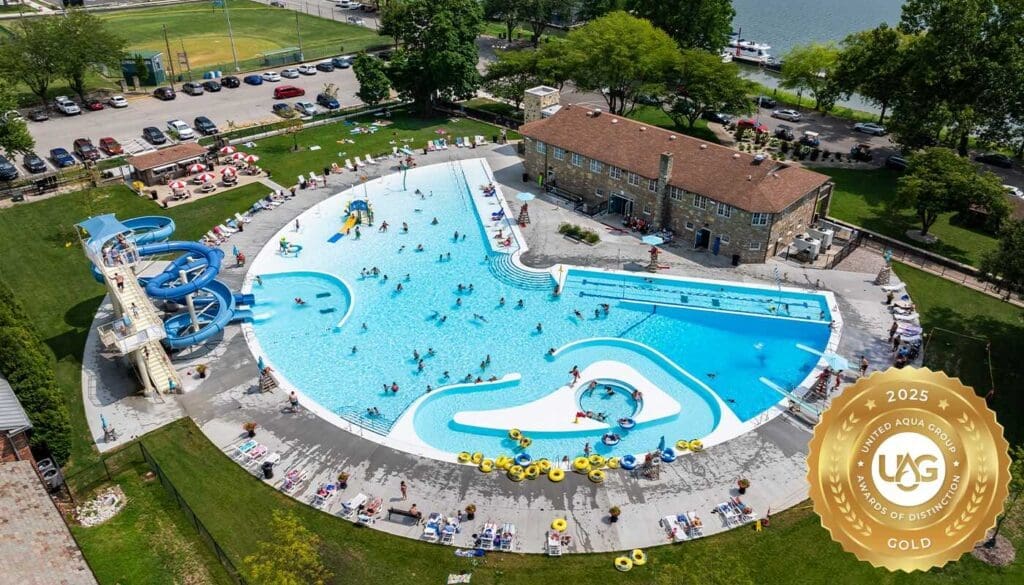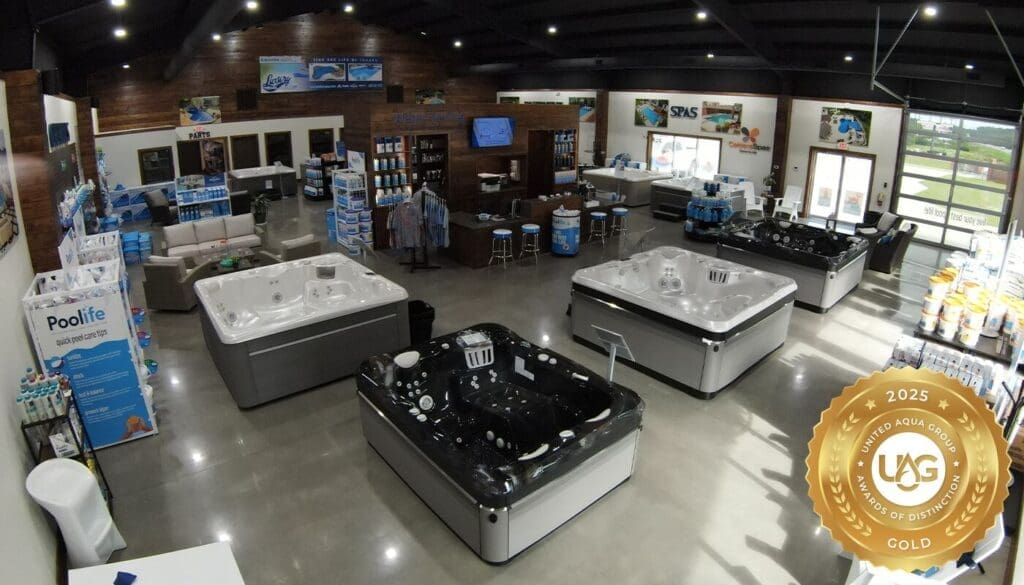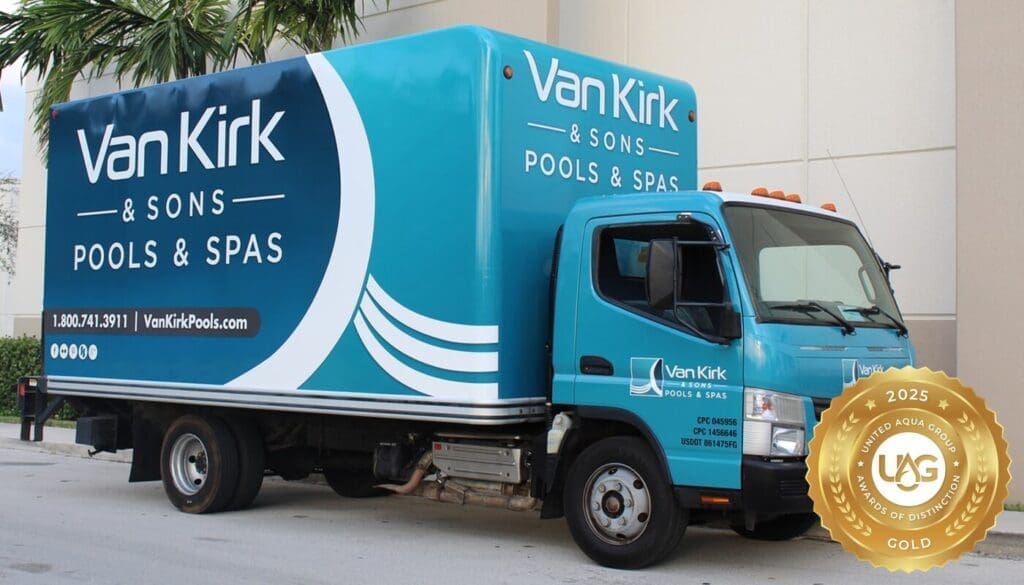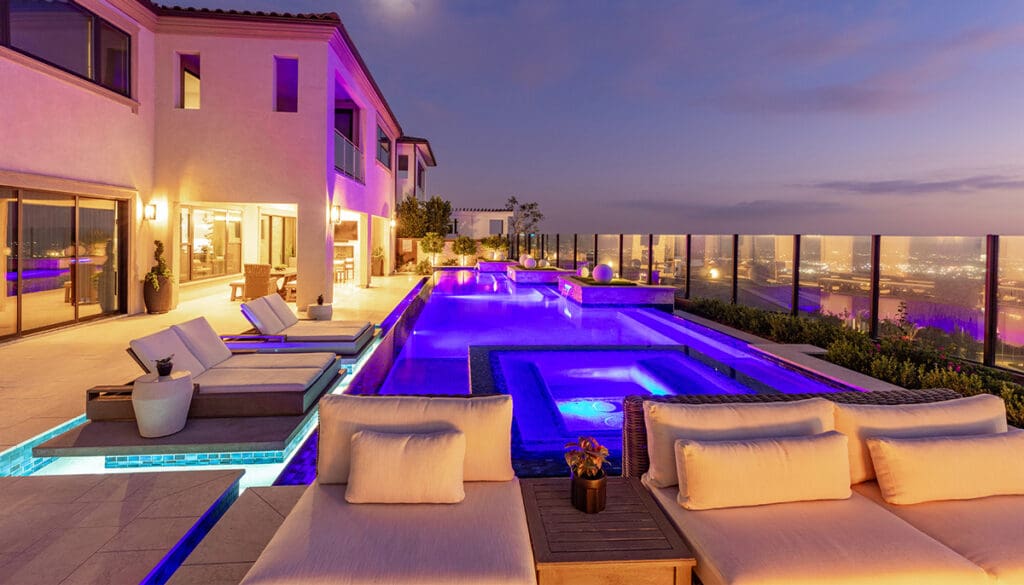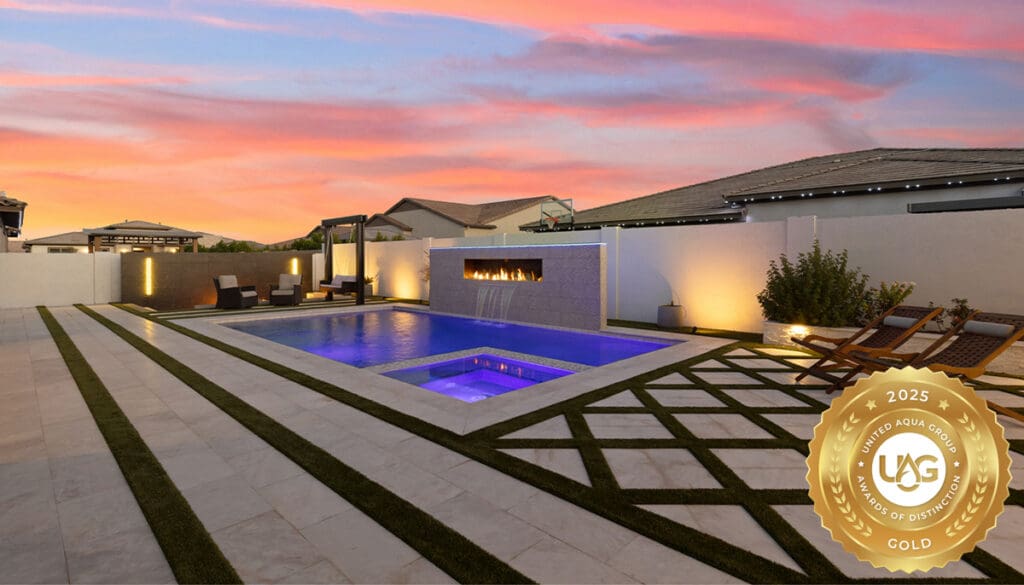Whether you’re a homeowner or a business owner, keeping your pool clean is a top priority. You not only want it to look good but also be safe for people to use. Chlorine is a cleaning agent designed to keep pools pristine all year long. It’s available in both liquid and tablet form for your convenience. But how do you know which option is right for your pool? This guide is here to help you decide.
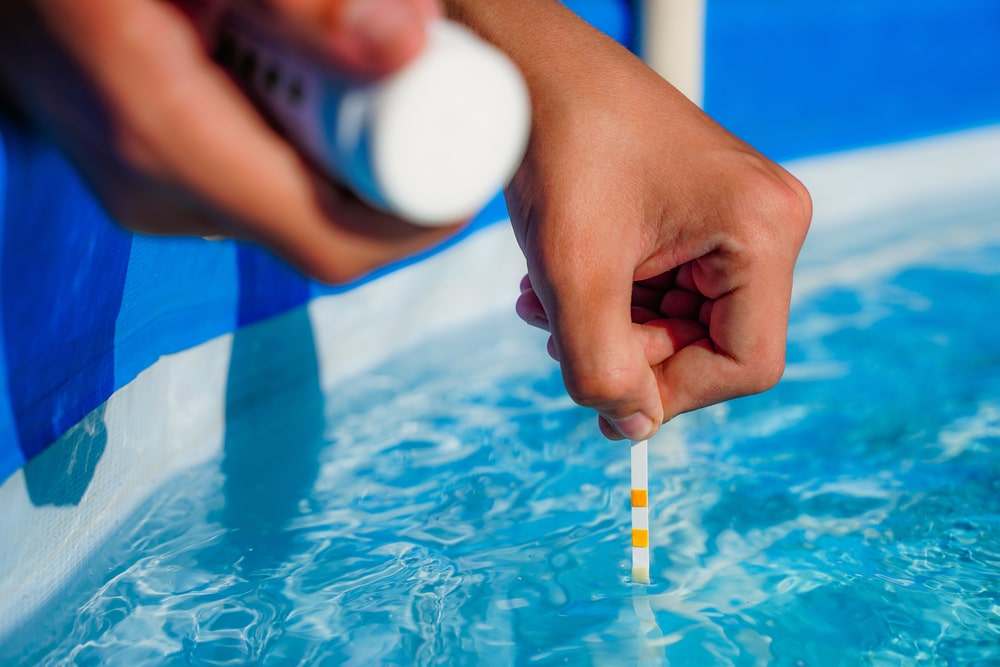
What Is Pool Chlorine?
Chlorine is a sanitizer that breaks down bacteria, viruses, and other harmful microorganisms in your pool water to keep it clean and safe for everyday use. If you’ve ever gone swimming in a chlorine pool, you know what this cleaning agent smells like. Chlorine releases chemicals called chloramines when it comes into contact with sweat, oil, and other natural substances. Chloramines actually make chlorine less effective at cleaning the water in your pool. Once you smell the chlorine, it’s time to add more.
In addition to chloramines, sunlight can also make chlorine less effective at disinfecting pool water. In just two hours, UV rays can reduce chlorine concentration by 90%. Thankfully, adding a stabilizer prevents these harmful rays from affecting the chlorine.
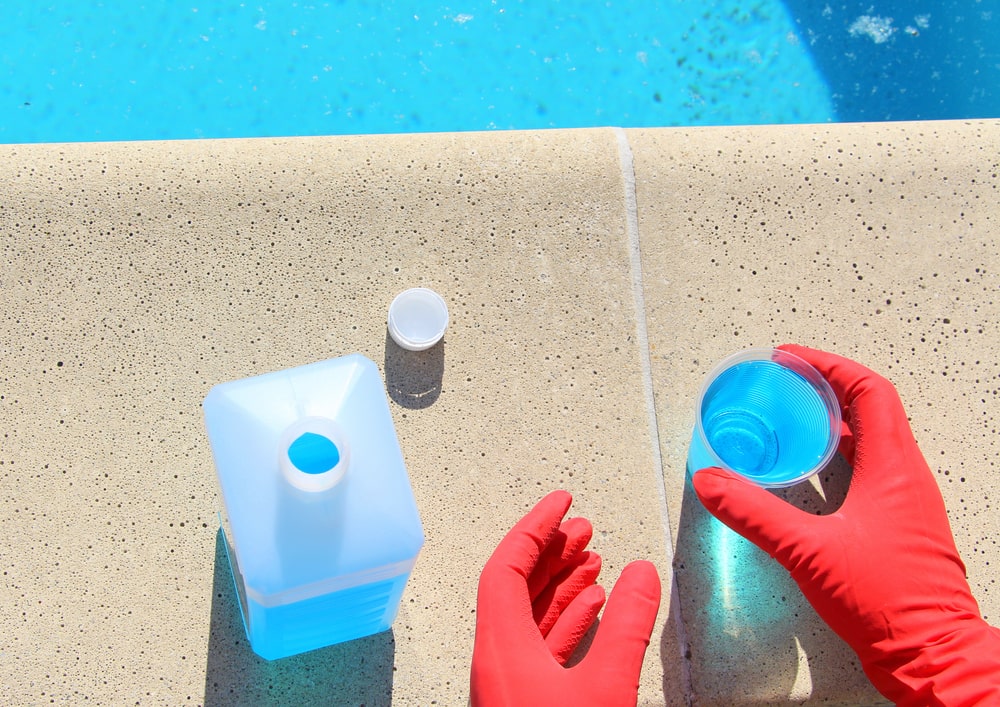
Liquid Pool Chlorine
Liquid pool chlorine is stronger than the chlorine you use to keep your whites looking fresh. Chlorine for household use contains 7.5% chlorine or less, whereas pool chlorine contains between 10% and 12% chlorine. This chlorine, water, and salt mixture comes in plastic jugs for easy storage and application.
Pros of Liquid Pool Chlorine
Here’s why many homeowners and business owners prefer liquid chlorine over chlorine tablets to clean their pools.
- It’s fast-acting: Liquid chlorine dissolves in a matter of seconds.
- It disinfects better: Liquid chlorine removes contaminants quicker and more effectively than chlorine tablets.
- It’s safer: Liquid chlorine doesn’t produce toxic chemicals or leave behind unwanted residue, making it safer for people and the environment.
- It’s cost-effective: Although you have to replenish it more often, liquid chlorine is still cheaper than chlorine tablets.
- It’s user-friendly: All you have to do is pour the chlorine into the water. You can accelerate the process by pouring it in front of a water jet for faster dissemination.
Cons of Liquid Pool Chlorine
Like with any product, liquid chlorine also has some downsides.
- It increases the pH level of your pool’s water
- It’s more labor intensive due to the heavy jugs
- It’s not long-lasting unless paired with a stabilizer
- It has a short shelf life, only lasting for a few weeks on average
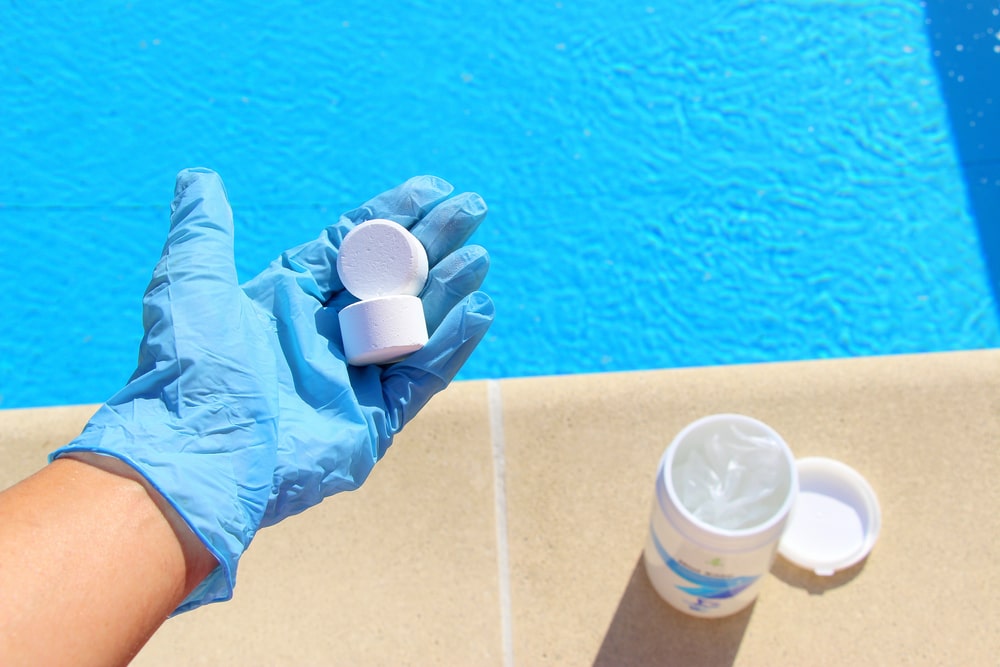
Pool Chlorine Tablets
Chlorine tablets—also known as dry chlorine—are available in one-inch and three-inch tablets. One-inch tablets are better for smaller pools containing less than 5,000 gallons of water. Three-inch tablets are better for large swimming pools containing a minimum of 5,000 gallons of water. These tablets are a more convenient alternative to their liquid counterpart.
Pros of Pool Chlorine Tablets
One might choose chlorine tablets over liquid chlorine for the following reasons.
- They last longer: When combined with a stabilizer, chlorine tablets are effective for a longer time period than liquid chlorine.
- They’re low maintenance: Chlorine tablets don’t require any measuring and aren’t difficult to transport. Just pop them in the water, and go about the rest of your day. Their small size also means they require minimal storage space.
- They’re more concentrated: While liquid chlorine contains just 10-12% chlorine, chlorine tablets can contain up to 90% chlorine. This higher chlorine concentration means they clean water better than liquid chlorine.
- They have a longer shelf life: While liquid chlorine only lasts for a few weeks, chlorine tablets can last up to two years if stored properly. You don’t have to worry about them going bad before you use them.
Cons of Pool Chlorine Tablets
You might shy away from chlorine tablets due to these disadvantages.
- They decrease the pH level of your pool water
- They take longer to dissolve and start working
- They can’t be used in vinyl or fiberglass pools
- They’re not as widely available as liquid chlorine
Liquid Chlorine vs. Chlorine Tablets: Which Is Better?
Both liquid chlorine and chlorine tablets sanitize pool water effectively. Determining which is the superior option depends primarily on your preferences, physical ability, and time commitment. Here are a few scenarios in which each option might be preferred.
Liquid Chlorine
- You need your pool cleaned quickly
- You need something budget-friendly
- You need something that’s easy to use
Chlorine Tablets
- You can’t lift heavy objects
- You have limited time to dedicate to pool maintenance
- You need something that will last more than a few weeks
Keep Your Pool Clean Year-Round With UAG
Keeping your pool clean year-round is an investment. What if you could get the cleaning products you need at a lower rate? If you’re a pool professional, you can do just that when you join UAG. We have a generous selection of liquid chlorine and chlorine tablets, all available for less than their distribution prices. Contact us or submit an application today to unlock exclusive member benefits like this.

